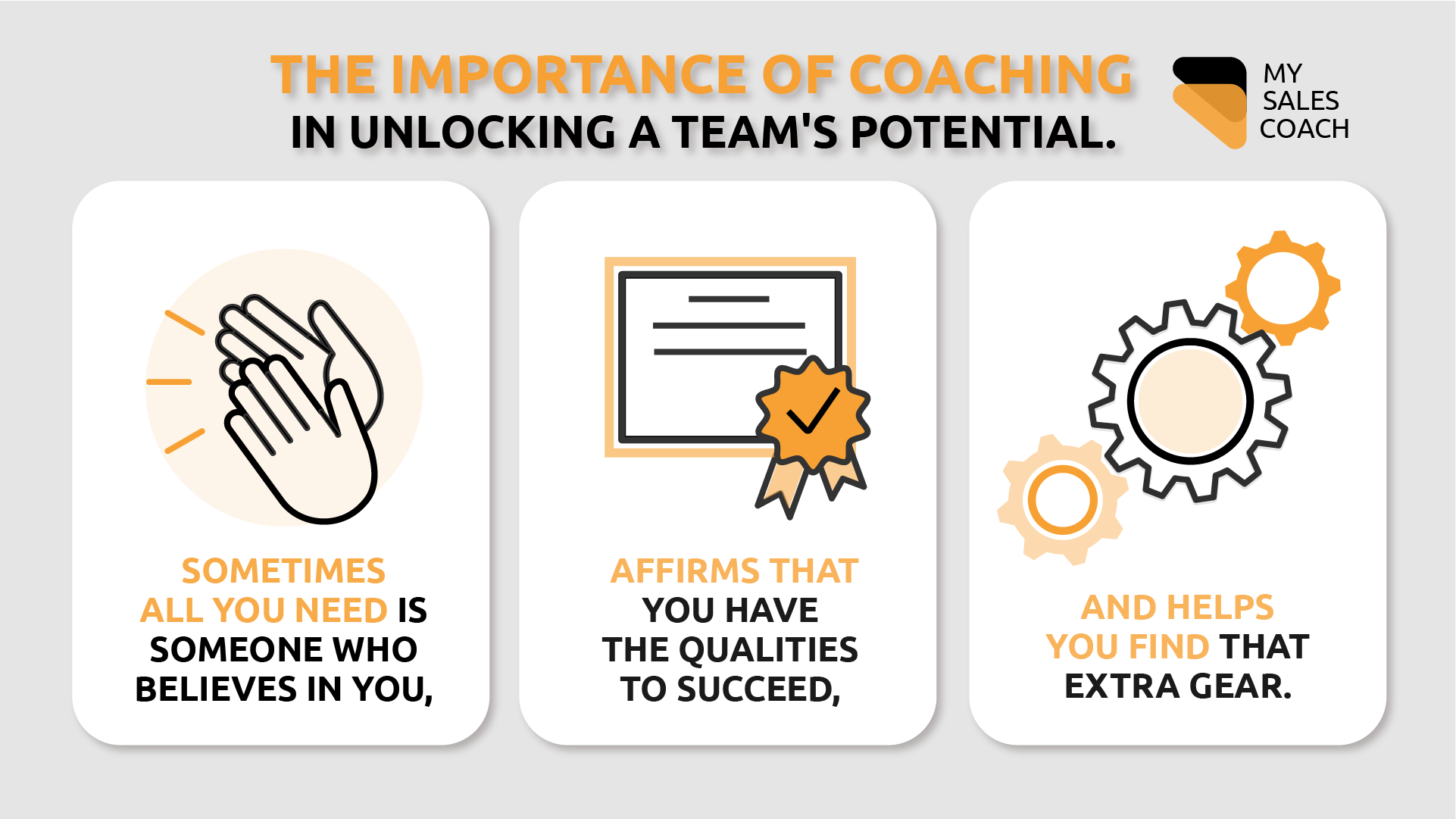Sales coaching will be a game-changer for your organisation, helping your reps improve their skills, boost their confidence, and ultimately drive revenue growth. At MySalesCoach, we've seen first-hand the power of coaching in action, and we want to share some success stories with you.
In this blog post, we'll explore three case studies that showcase the transformative impact of sales coaching. From a SaaS company struggling to hit its targets to an AE team in the HR tech space, we'll look closer at the challenges these organisations faced, the coaching interventions we implemented, and the outcomes achieved.
If you're a sales manager looking to boost your team's performance or a rep seeking to improve your skills, these case studies will inspire you and give practical insights into how coaching helps you achieve your goals.

Case Study 1:
How Sales Coaching Boosted a SaaS Company's Performance
MySalesCoach received a call from the Chief Revenue Officer (CRO) of a SaaS business that sells marketing solutions.
This CRO was feeling the pressure to hit revenue targets and wanted to give their sales team a much-needed boost. So they turned to MySalesCoach for help.
The CRO managed new business, account management, marketing, and sales development teams and was responsible for achieving the company's revenue targets. They had a talented sales team, but despite good training, the team was falling short of their expectations. The team's conversion rate was around 60-70%, but the CRO wanted to achieve 80% or higher.
MySalesCoach designed a coaching program for the team that included one-on-one coaching sessions. During these sessions, the coach discovered that some team members felt that training was a message that they were not good enough. But on the other hand, they found coaching affirming.
Coaching helped the team realise that they had the attributes to be successful. They just needed a push to do the extra things required to succeed. The coaching program gave the team members new personal accountability and transformed the team.
Within three months of finishing the coaching program, 80% of the team was hitting their targets, compared to none before the program. This success led to numerous promotions within the company. The reps had new-found confidence and were ready to realise their potential.
This case study highlights the importance of coaching in unlocking a team's potential. Furthermore, it demonstrates that training alone may not be enough to bridge the gap between good performance and exceptional performance.
Sometimes all you need is someone who believes in you, affirms that you have the qualities to succeed, and helps you find that extra gear. In this case, that someone was a sales coach.
In the following case studies, we'll explore how coaching helped individuals overcome imposter syndrome, iterate on tactics, and take accountability for self-development.
Case Study 2 – HR tech AE team
We were approached by a SaaS company in the HR tech space that had recently changed leadership.
The company had just appointed a new VP of Sales from the Customer Success team, and the Chief Commercial Officer (CCO) knew that she would need support to transition to the new role. The CCO decided to bring in an external coach to provide the expertise and knowledge required for success.
The new VP of Sales was promoted from within the company's Customer Success team, and while she had been trained on the sales process by the CCO, the CCO knew that coaching was necessary to ensure her success in the role.
Our coach worked closely with the new VP of Sales on a variety of topics, including addressing personal questions such as:
- How can I apply myself to this new role?
- Can I have the confidence to move from Customer Success to Sales?
- How can I raise my sales game by caring about personal development and applying myself differently?
The coaching sessions also focused on tactical aspects of the sales process, identifying areas where improvements could be made, including Sales discovery calls, demos and closing. Our coach provided valuable experience, ideas, and knowledge that the CCO couldn't replicate in-house.
Thanks to this coaching, the new VP of Sales was able to fully ramp up in her role within six months. She hit her numbers two years in a row and was recently promoted to Head of Sales. She attributes her success to coaching, which helped her overcome imposter syndrome, iterate on her tactics and take accountability for her self-development.
This case study illustrates how coaching can provide valuable support to new leaders, helping them navigate the challenges of a new role and develop the skills needed to succeed. By focusing on both personal and tactical aspects of the job, coaching delivers a comprehensive solution that training alone cannot match.
Case Study 3 – Sarah (the SDR)
Sarah, an SDR at a B2B sales company, was struggling to get responses from her outreach emails and calls. She was feeling frustrated with her lack of success. Sarah knew she needed help to improve her sales skills and turned to MySalesCoach for support.
Our coach worked with Sarah to examine her messaging and outreach strategies. Through role-playing and feedback sessions, Sarah learned how to craft more customer-centric emails and engage in meaningful conversations with prospects on the phone. She also experimented with multi-threading and other prospecting techniques.
The breakthrough moment for Sarah came when she realised that her previous emails and calls had been too sales-focused and lacked a human touch. With coaching, she learned to prioritise building relationships with prospects, which led to more productive conversations and, ultimately, more booked meetings.
As a result of her coaching, Sarah's confidence and success grew. She booked more meetings and achieved her sales targets consistently, leading to a promotion to an Account Executive role.
Applying the insights
Now that you've seen the transformative impact of sales coaching, you may want to know how to apply these insights to your role. Here are some practical steps you can take to incorporate coaching into your team's training and development.
- Identify areas where coaching could benefit your sales team, such as improving messaging, building confidence, or trying new prospecting techniques.
- Choose a coach or coaching program that aligns with your team's needs and values.
- Set clear goals and expectations for the coaching program, and communicate them to the coach and team members.
- Provide ongoing support and feedback to team members throughout the coaching process.
- Celebrate successes and share learnings with the broader organisation to encourage a culture of continuous learning and growth.
By examining the success stories of three different companies, we can see that coaching can be transformative for both individuals and teams. Through one-on-one (and team) sessions, coaching can help individuals develop confidence, overcome imposter syndrome, and take accountability for their self-development.
Additionally, coaching can provide a fresh perspective and new ideas to help teams identify and address gaps in their sales process.
To apply these insights to your sales team, consider partnering with a sales coaching service like MySalesCoach. Match your team with experienced coaches who can help them develop the skills and mindset necessary for success.
Lastly - consider adopting a coaching-focused approach to your team's training and development, focusing on personal accountability and iterative improvement. With the right coaching support, your team can achieve the same level of success as the companies featured in these case studies.



